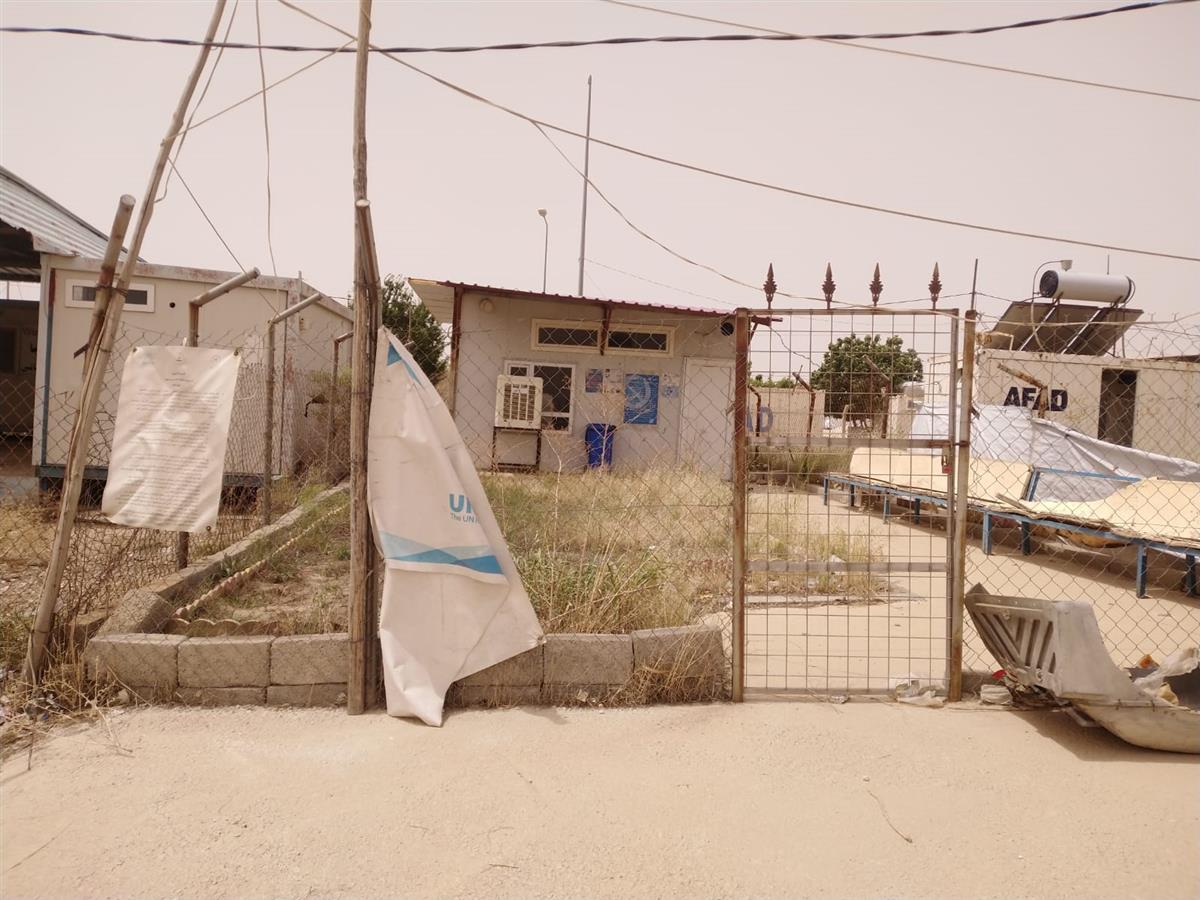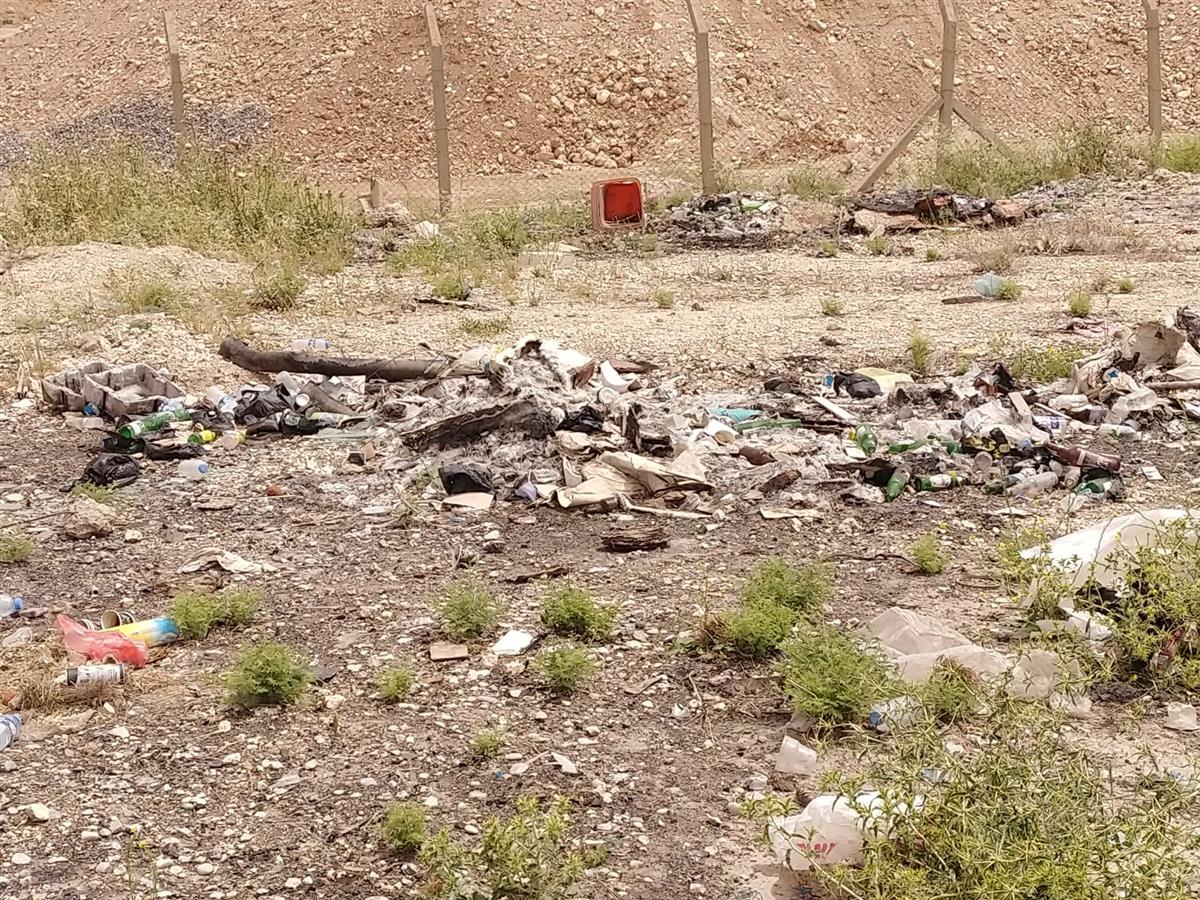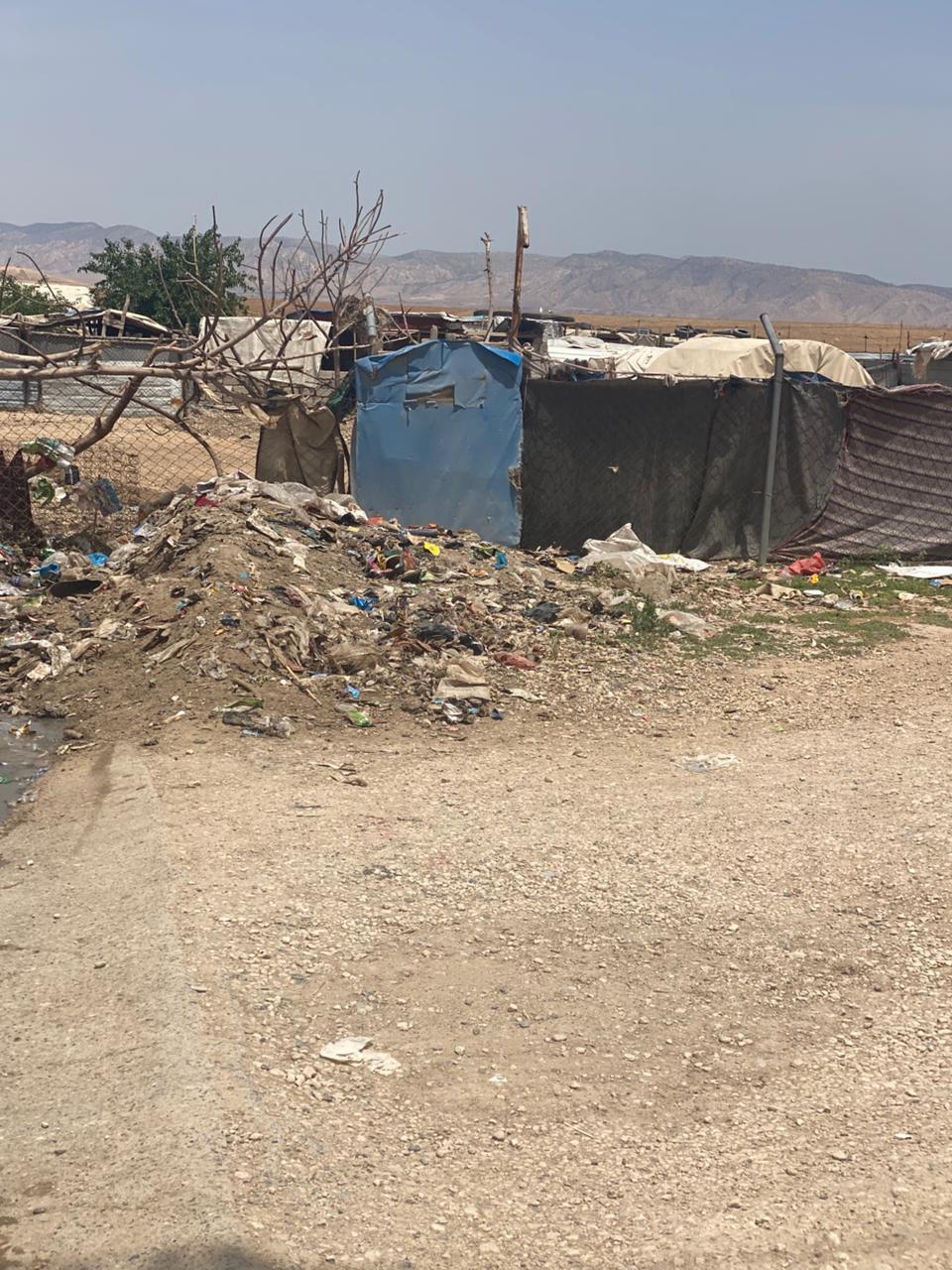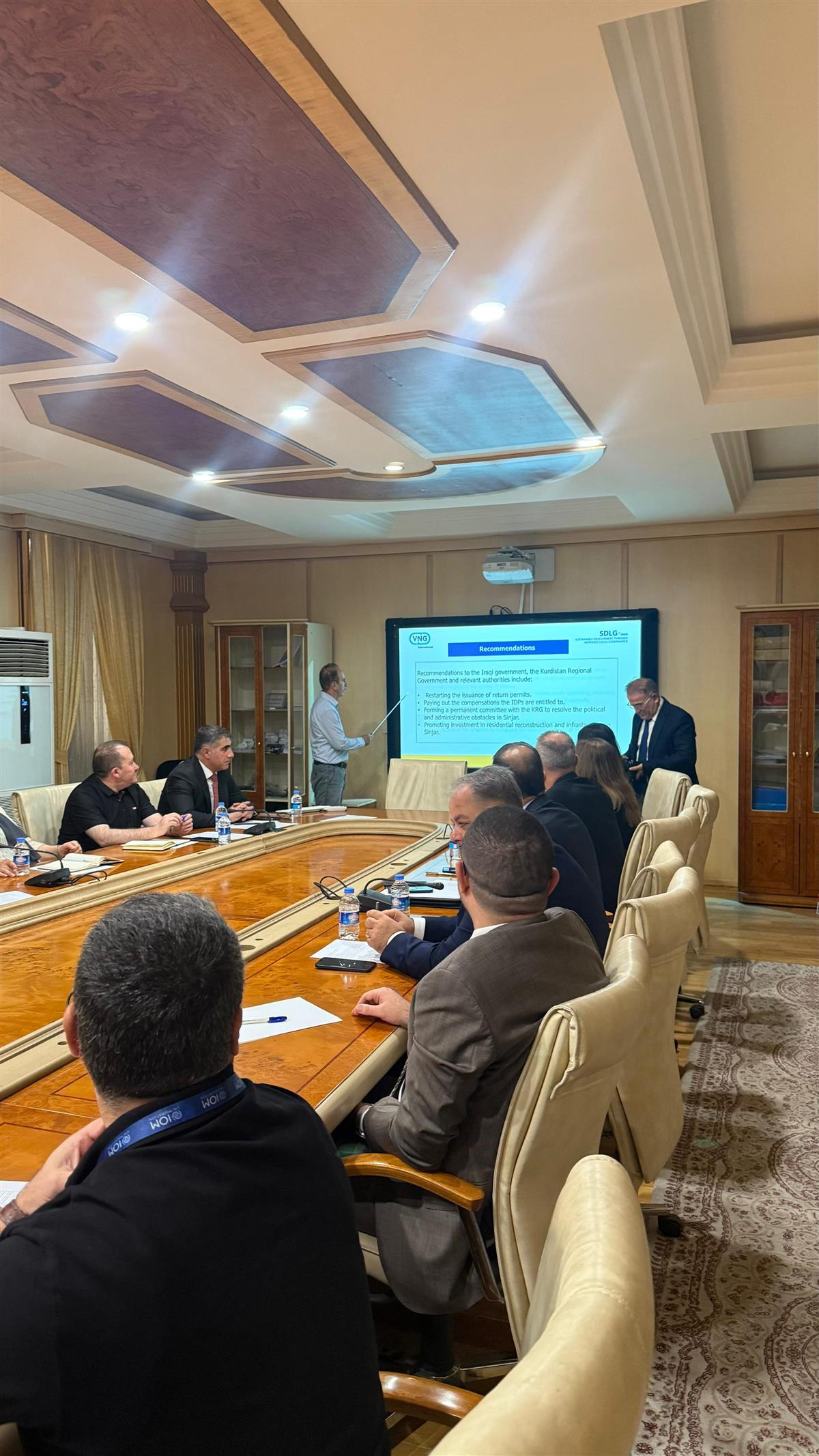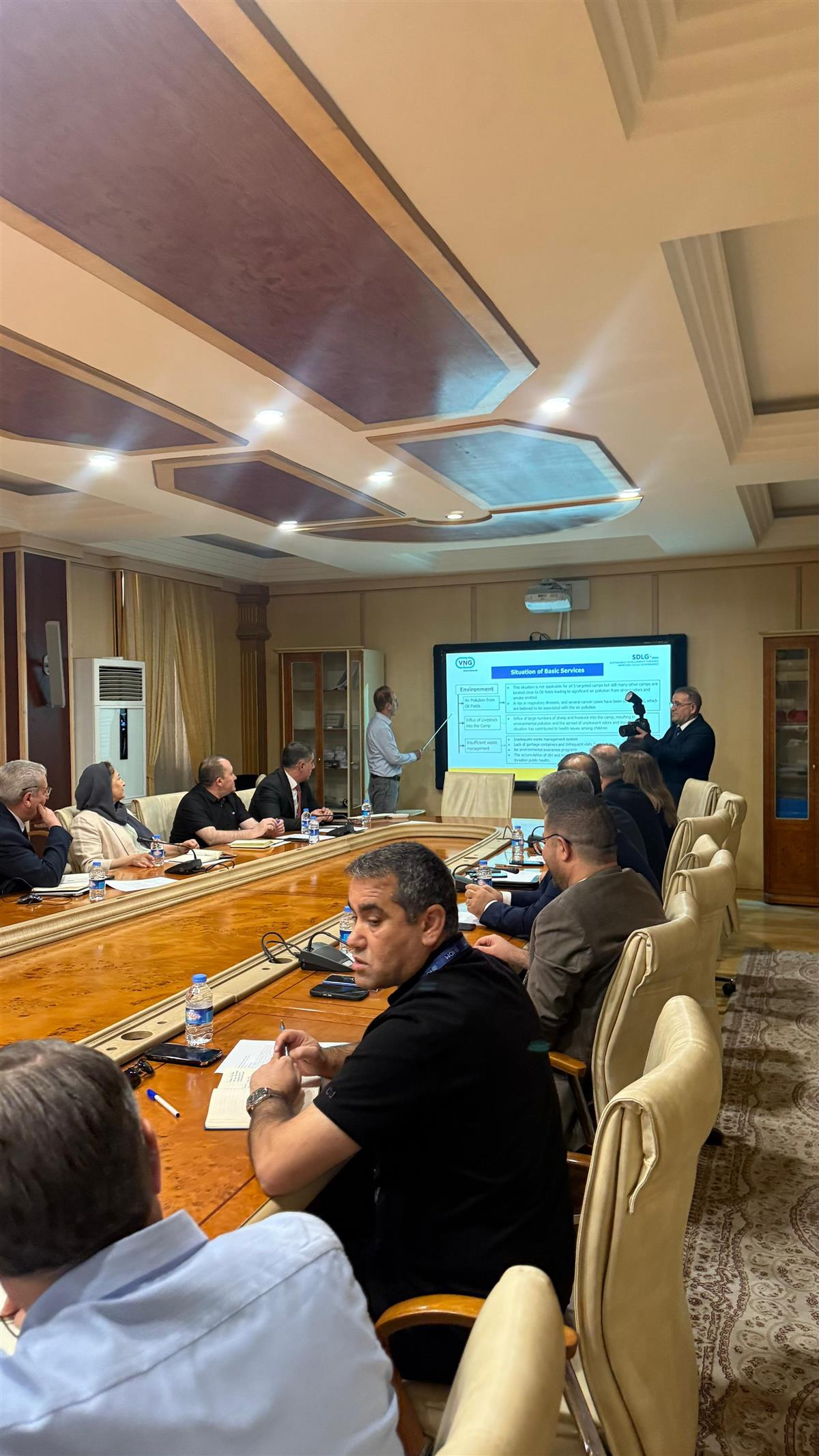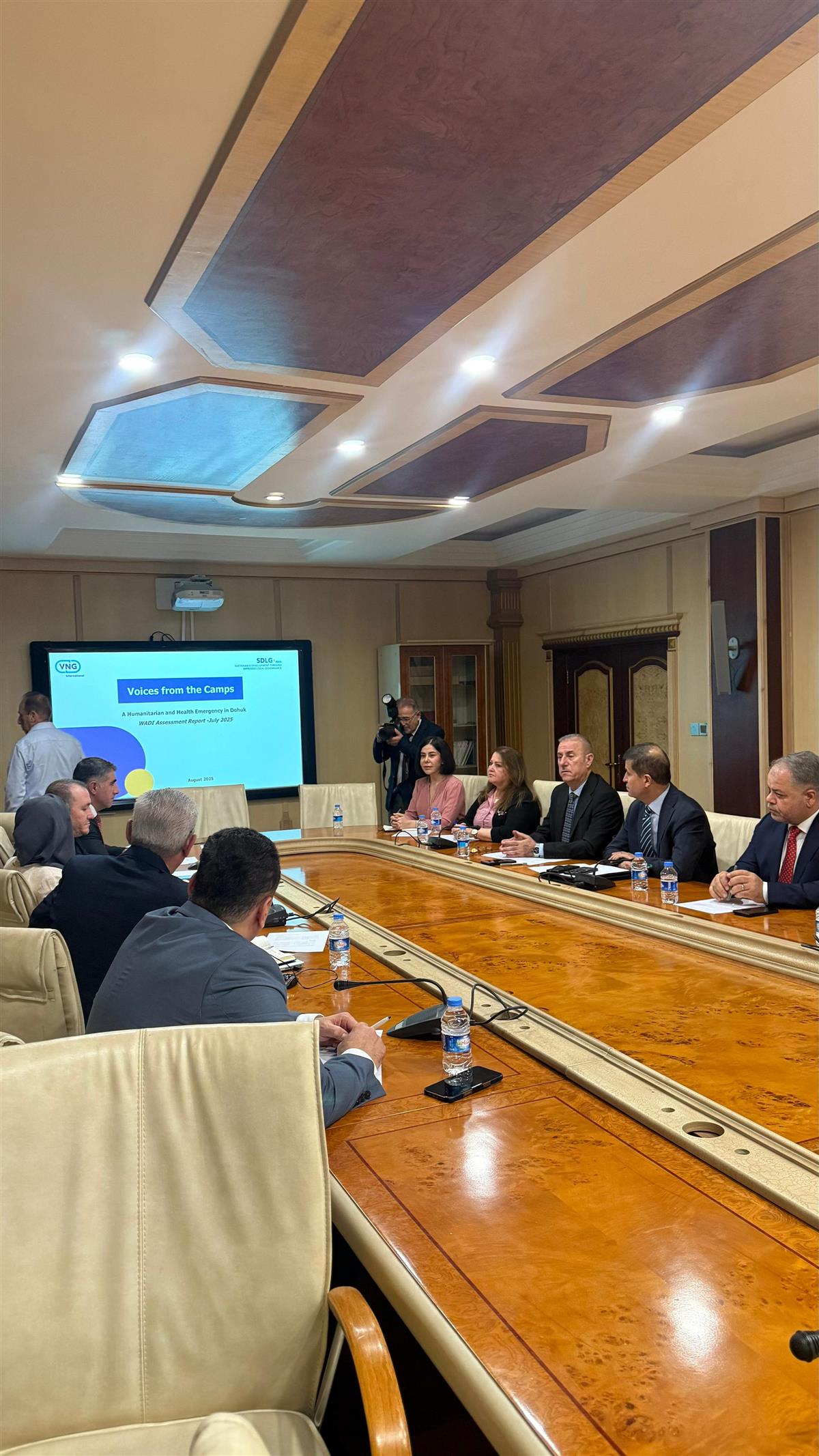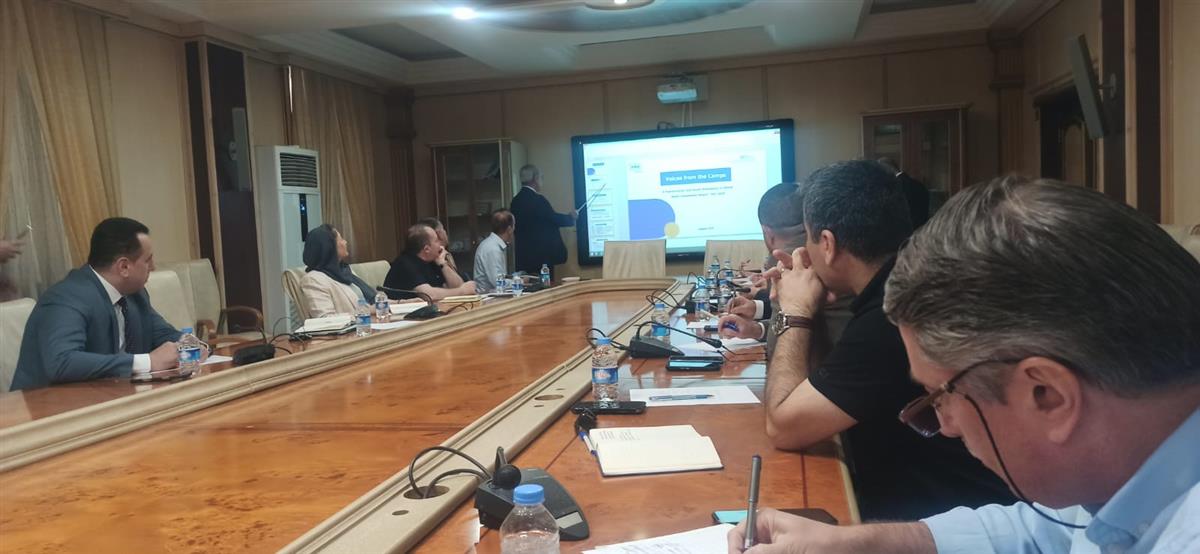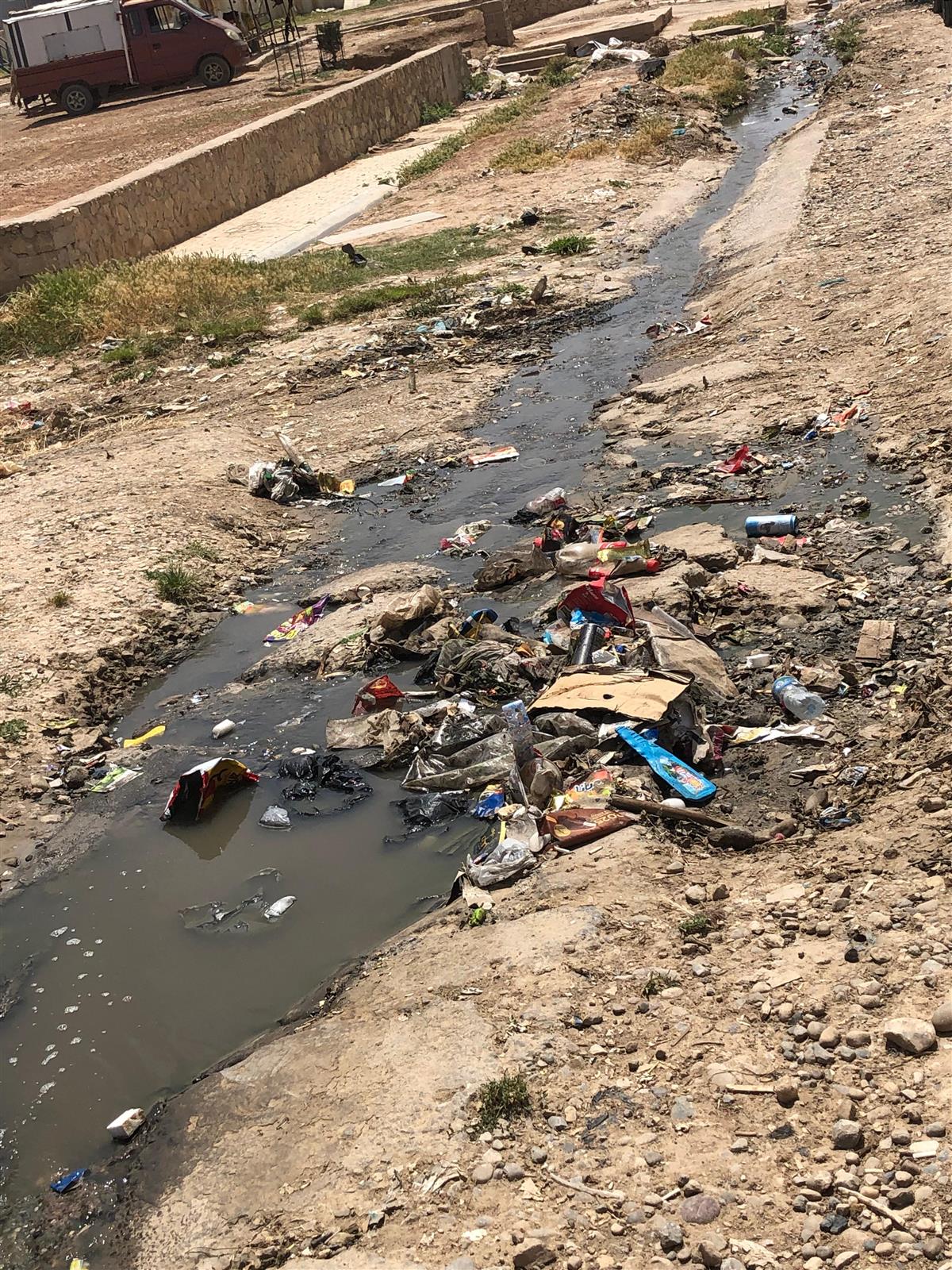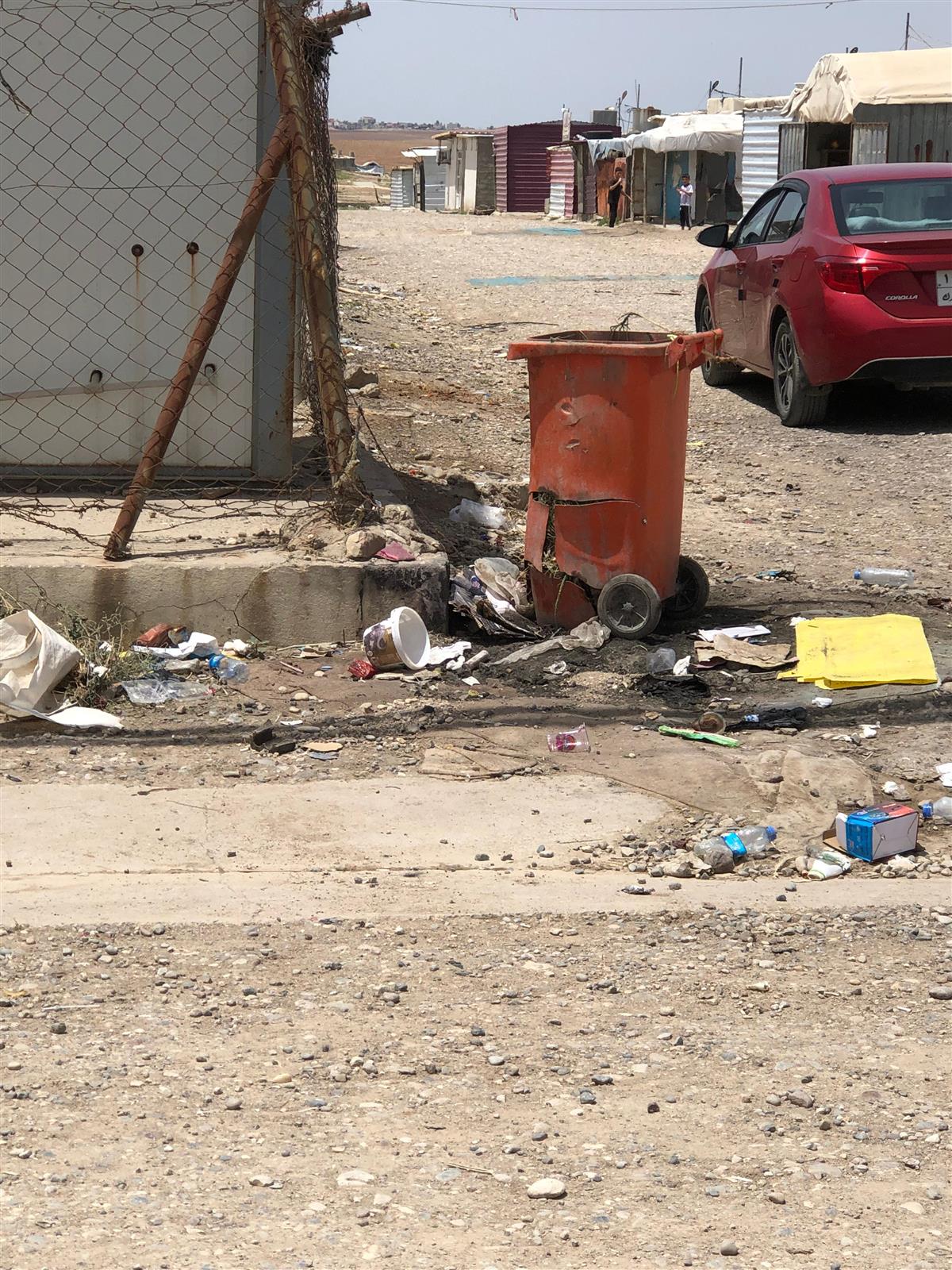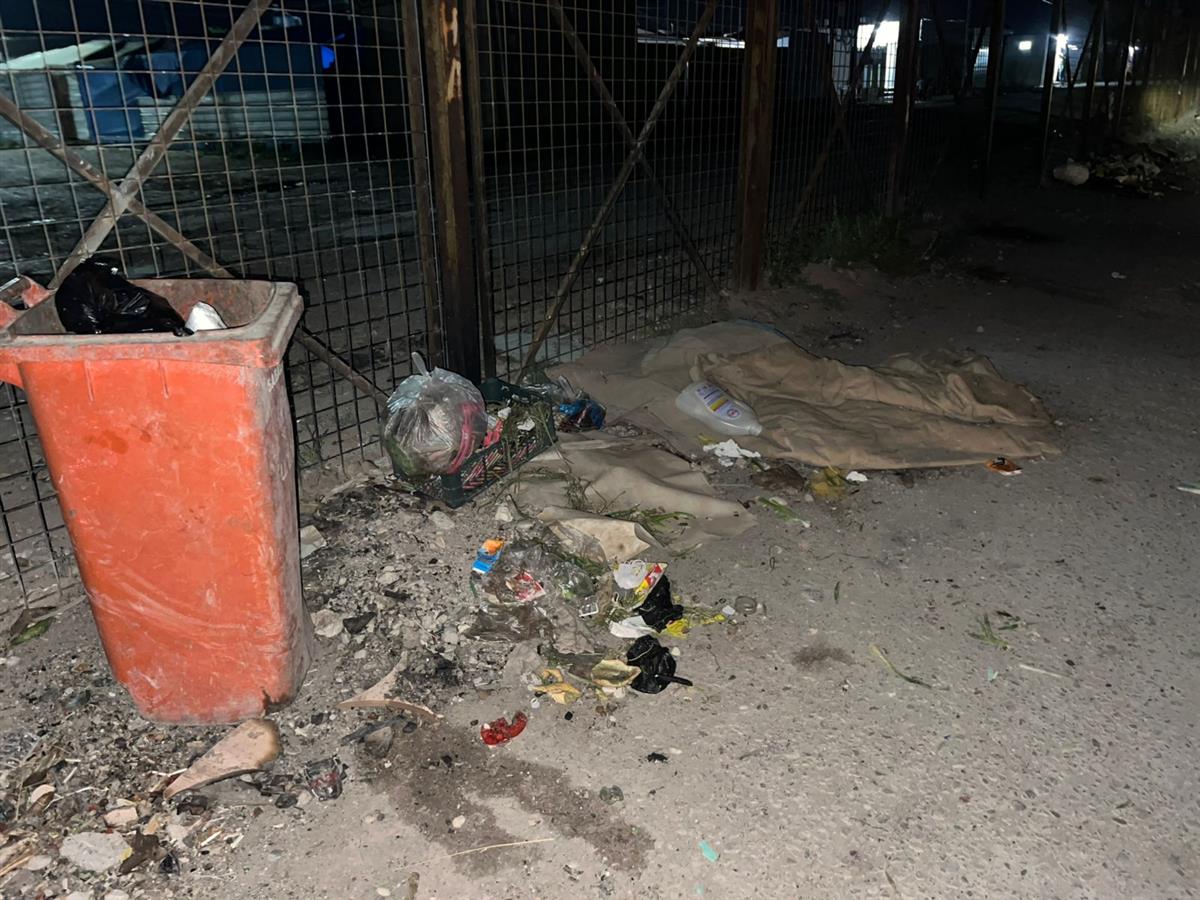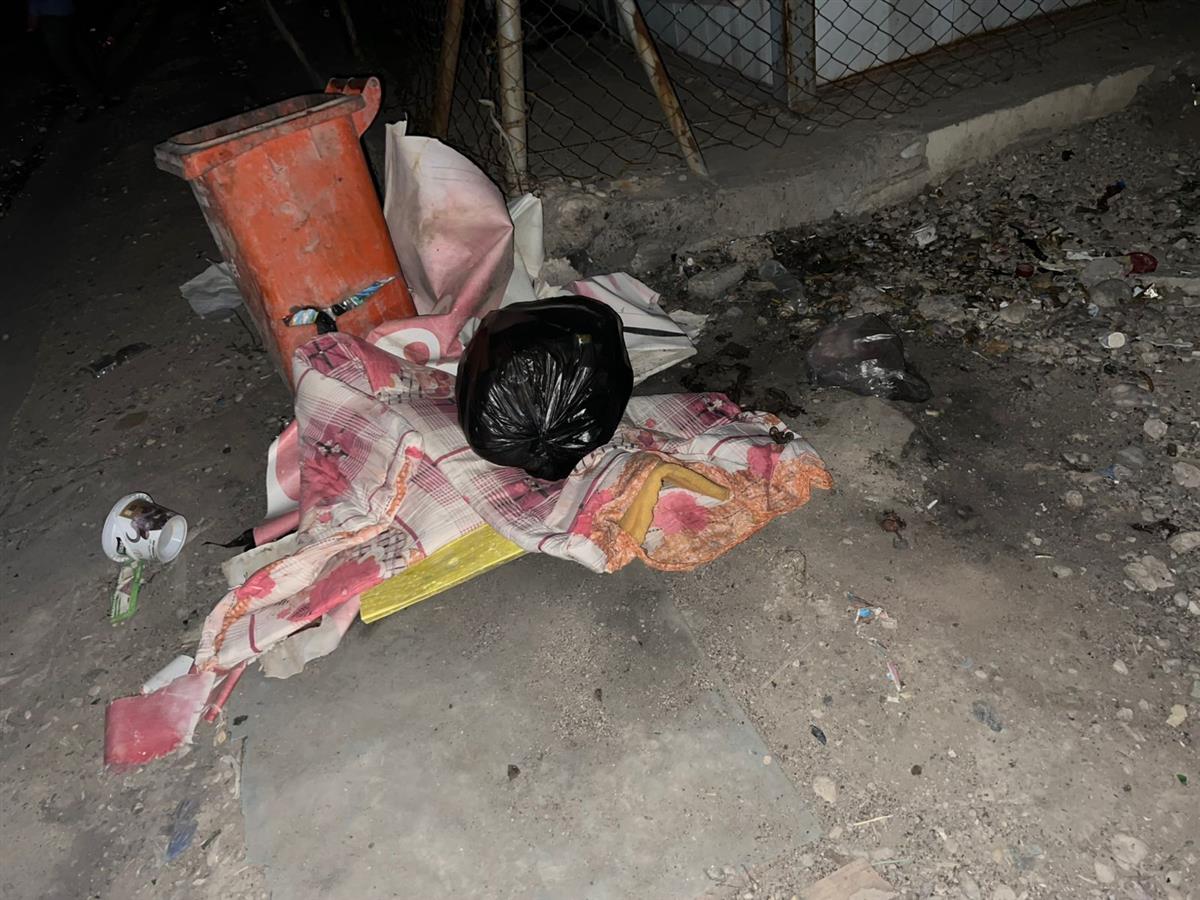Duhok Governorate meeting on the situation of the camps
2025-09-06
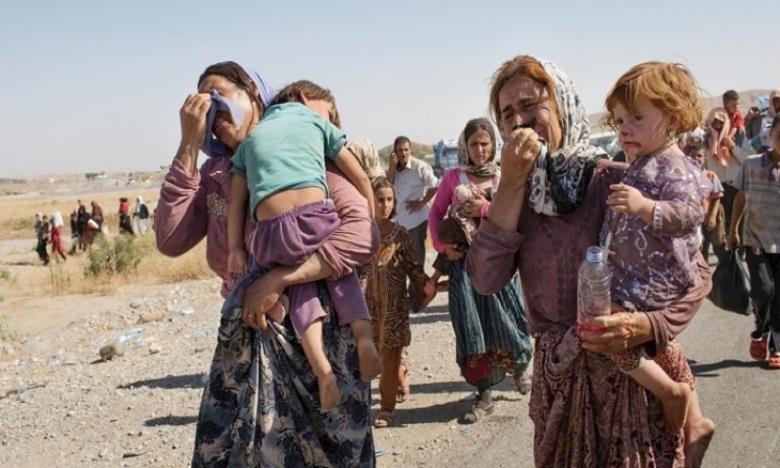
**Location:** Duhok Governorate
**Date:** Wednesday, 3/9/2025
**Report Writer:** Iyad Ismail – Human Network Representative at the Meeting
**Meeting Introduction: "Voice of the Camps"**
The meeting was held at the Duhok Governorate Council, with the attendance of a representative from Human Network, invited by the governorate and VNGi, along with representatives from the Health Directorate, Water Directorate, Social Welfare Directorate, the Relations Department in the governorate, and a representative from the Migration and Displacement Directorate, in addition to the Wadi Organization, IOM, and the Deputy Governor of Duhok, who chaired the meeting.
The meeting, titled "Voice of the Camps," aimed to discuss the results of a survey conducted in five camps for internally displaced Yazidis by Human Network and Wadi. Human Network covered the Kabrto 1 and 2 camps and the Sharya camp, while Wadi covered the Khanqi and Iseyan camps.
The survey report revealed a clear shortage of essential services provided to the displaced persons and highlighted several inquiries regarding the role of government departments in managing the camps and providing the necessary support to ensure a dignified life for the displaced. These observations were the primary reason for holding the meeting.
---
**Health Sector in the Camps**
**Current Health Services**
In response to questions regarding health services for children, the elderly, and women in the camps, the Health Director clarified that the services provided are only based on available resources. Currently, there is no effective support from the Iraqi government or humanitarian organizations as there was in the past, except for very limited support. There have been no allocated medical supplies for the displaced among the medicines sent from the Kurdistan Regional Government due to the financial crisis, and what is being dispensed comes from the Duhok Governorate's share, due to the lack of international support, the gradual withdrawal of organizations from the camps, and the lack of effective support from the Iraqi government apart from very limited aid.
**Current Health Risks**
The absence of vaccination sections in many camps poses a significant risk of infectious diseases spreading among children, especially polio, if the current situation continues without vaccination for children, with a significant drop in vaccination rates among children.
It was mentioned that formal letters have been directed to the Iraqi government in Baghdad warning of the collapse of the health system for the displaced in the coming years. The Health Manager revealed the registration of the first case of leishmaniasis in the Khanqi camp for displaced Yazidis, the first in Duhok Governorate in years, which warns of the spread of skin diseases that are difficult to control.
There is a high risk of cholera infection during two seasons each year. So far, the cleanliness of drinking water has helped avoid recorded cases, but with the absence of awareness and government and organizational support, the threat remains significant and requires urgent solutions.
---
**Most Affected Groups**
Children, women, and the elderly currently face severe limitations in health services, unlike before when organizations provided better and more comprehensive care. There is a clear gap in the level of services provided to these vulnerable groups.
The Health Director addressed the merging of some health centers in the Bajdakan camp due to a lack of personnel and medicines, where there are 21 health centers distributed across 16 camps in Duhok Governorate, in addition to some ambulances in the Zakho camps. However, merging and limited resources negatively impacted the efficiency of services.
The General Director of Health in Duhok confirmed that health services are provided within the camps, but they are not at the required level due to the lack of support from all parties, whether from the Iraqi government or international organizations.
---
**Escalating Health Crisis in Duhok Camps**
The General Director of Health in Duhok warned of the deteriorating health situation inside the camps for displaced persons due to the lack of governmental and international support and the gradual withdrawal of humanitarian organizations over the past years.
He added that Duhok Health has sent official letters to the Iraqi government in Baghdad warning of the collapse of the health system among the displaced in the coming years if support continues to be absent, stressing the urgent need for immediate intervention to ensure the continuation of basic services and save the lives of thousands of displaced persons.
---
**Municipal Sector Challenges in the Camps**
The Director of the Municipal Directorate explained in response to questions mentioned in the report resulting from the survey that the service situation is showing a significant decline in the level of municipal services since the beginning of the year due to the absence of government funding and support from humanitarian organizations, which has led to waste accumulation and an inability to cover all areas within the camps appropriately.
The director clarified that the shortage of human resources has exacerbated the crisis, as the retirement of several employees and the lack of new appointments have resulted in a clear shortage in the workforce, which has negatively impacted daily work efficiency.
He added that the limited hours for waste collection, the improper disposal of waste within the camps, and low community awareness have all contributed to deepening the crisis, warning that the continuation of this situation could pose significant environmental and health risks threatening the lives of the displaced, particularly children and the elderly.
The Municipal Director emphasized the urgent need for immediate funding and the provision of modern mechanisms and equipment for waste collection, alongside strengthening human resources through appointments or temporary contracts, calling for urgent intervention from the government and international organizations to support camp management and avoid an impending health and environmental disaster.
---
**Water Directorate**
The representative of the Water Directorate explained that the main reasons for the crisis lie in the limited government financial allocations and the withdrawal of UNHCR from the camps. Additionally, the distance of water sources from the camps leads to limited supply, while the distribution networks are weak and need repair. He mentioned that water is tested at the main source and meets specifications, while they do not have sufficient personnel to test it within the camps or check the residents' tanks to determine if there are leaks in the pipes during delivery operations.
He indicated that these conditions have negative effects on public health, especially among children and the elderly, in addition to the additional financial burdens that displaced persons have to bear to obtain limited amounts of water. The Water Directorate Manager reiterated that the primary reason is the lack of funding and the inability to rehabilitate the dilapidated networks within the camps, stressing that solving the crisis requires collective efforts from the government and international organizations to ensure sustainable and regular access to water.
---
**DOLSA**
A representative from the Directorate of Labor and Social Affairs (DOLSA) confirmed that the services provided to the displaced in the camps have significantly decreased in recent months due to the cessation of support from humanitarian organizations and a reduction in government funding, which has directly reflected on the needs of displaced families.
He explained that psychological and social support programs for children and women have been significantly affected, as many activities that provided a safe environment for children and helped families cope with displacement conditions have been stopped or reduced. Additionally, all programs will cease on September 15 due to lack of support.
He noted that the funding shortfall has prevented the continuation of many projects that contribute to providing basic social service needs, stressing that the absence of this support leaves displaced persons facing increasing daily suffering.
The official called for the need to reactivate international and governmental support to ensure the continuation of humanitarian and social services within the camps, pointing out that the absence of sustainable solutions will exacerbate the psychological and social conditions of the displaced, especially children and women who are the most affected.
He concluded his statement by saying, "The Directorate of Labor and Social Affairs is doing its best, but its resources are very limited, and we need support to provide basic services for the displaced, in addition to the Directorate not having the financial and logistical capabilities to send government employees to the camps to cover the shortage as they only provide recreational activities within the government program without any psychological or social support activities."
---
**Relations Department in Duhok Governorate**
The head of the Relations Department in the governorate revealed during a joint meeting with the directors of service and health departments that the level of services provided in the camps has declined, explaining that the reason is due to pressure from the Iraqi government on employees and forcing them to work in Sinjar and other areas, which led to their withdrawal from work in the camps, especially education and health employees. Furthermore, the other reason is the lack of support from the Iraqi government for the displaced in addition to the withdrawal of organizations following the decision to withdraw the UNAMI mission.
---
**Representative of the Migration and Displacement Directorate**
The representative of the Migration and Displacement Directorate confirmed that the support provided to the displaced in the camps is currently very limited. He explained that the Iraqi government has not provided any tangible support to the displaced at this time and noted attempts to close some camps without a realistic study or evaluation of the existing conditions on the ground.
He pointed out that the Ministry of Migration has sent only one food allocation to the camps in 2025, which has directly impacted the nutritional and living conditions of the displaced. He also highlighted that compensation for the displaced has completely stopped, affecting their ability to return to their original areas safely and stably.
This situation reflects the urgent need for immediate intervention from government bodies and international organizations to ensure the continued support for the displaced and secure their basic needs, including food and shelter, as well as reassessing policies for closing camps to ensure that affected populations are not harmed.
---
**Meeting Conclusion**
The meeting minutes agreed on several key points to ensure the improvement of the situation of the displaced in the camps:
- Providing a sufficient budget that enables the concerned parties to perform their tasks efficiently.
- Pressuring the Iraqi government to assume its responsibility in providing the necessary support to the displaced and securing their basic needs.
- Seeking international and local donors to enhance available resources and provide continuous support to the camps.
The attendees confirmed that implementing these measures represents a vital step towards improving the lives of the displaced and ensuring their stability.
---
**Human Network Recommendations**
**General and Joint Recommendations**
1. Form a joint high emergency committee from government entities and international and local organizations to follow up on the conditions of the camps and develop an urgent response plan.
2. Reactivate international support through the UN and major humanitarian organizations, and pressure the international community for gradual assistance to the camps.
3. Allocate an emergency budget from the Iraqi government and the Kurdistan Regional Government to cover the basic needs of the camps.
4. Freeze decisions to close camps until a comprehensive assessment of the conditions is conducted, ensuring safe and suitable alternatives for the displaced.
5. Launch a media awareness and international advocacy campaign to highlight the humanitarian situation in the camps and garner support.
**Health Recommendations**
1. Reopen vaccination centers within the camps, especially for children, to avoid the spread of diseases like polio and cholera.
2. Secure a special medication allocation for the displaced within the governmental medicine distribution plan and through specialized organizations.
3. Hire or contract health personnel to fill the acute shortage of staff.
4. Activate mental health and psychosocial support programs in collaboration with specialized organizations.
5. Conduct periodic health awareness campaigns within the camps covering hygiene, disease prevention, and nutrition.
**Environmental and Service Recommendations (Municipal and Water)**
1. Fund waste management projects through direct municipal support or international organizations, providing modern equipment.
2. Employ temporary workers from within the camps to assist in waste collection and provide environmental services.
3. Rehabilitate water networks and provide equipment for regular water quality testing within the camps.
4. Allocate emergency water tankers to cover periods of severe shortages and distribute new tanks to families.
5. Launch environmental awareness campaigns covering waste disposal methods, water conservation, and maintaining public cleanliness.
**Social and Humanitarian Recommendations**
1. Refinance psychological and social support programs for children and women, especially given the cumulative trauma experienced by displaced persons.
2. Provide mobile social support teams that include psychological and social specialists conducting regular visits to the camps.
3. Integrate the displaced into temporary vocational training programs to improve living conditions and reduce reliance on aid.
4. Appeal to organizations to resume protection programs, including child protection, combating gender-based violence, and empowering women.
**Administrative and Political Recommendations**
1. Pressure the Iraqi government to fulfill its commitments to the displaced, especially in food, education, and compensation issues.
2. Reconsider decisions to transfer employees from the camps to other areas (like Sinjar) to ensure the continuation of basic services.
3. Improve coordination between the regional government and the federal government regarding the management of displaced persons' affairs and unify efforts.
4. Involve the displaced themselves in decision-making and service planning through the formation of committees representing them within the camps.
**Recommendations Specific to the Ministry of Migration and Displacement**
1. Reactivate the distribution of food rations regularly, not just a single annual allocation.
2. Relaunch financial compensation programs to enable voluntary and dignified return.
3. Open branch offices of the ministry within the camps to expedite response and facilitate assistance access.
**Conclusion of Recommendations:**
Camps should be treated as a humanitarian, security, and strategic file, not just a social or charitable one. The absence of sustainable solutions could lead to a complete collapse of the humanitarian system within them, with dire implications for overall stability in the region.
